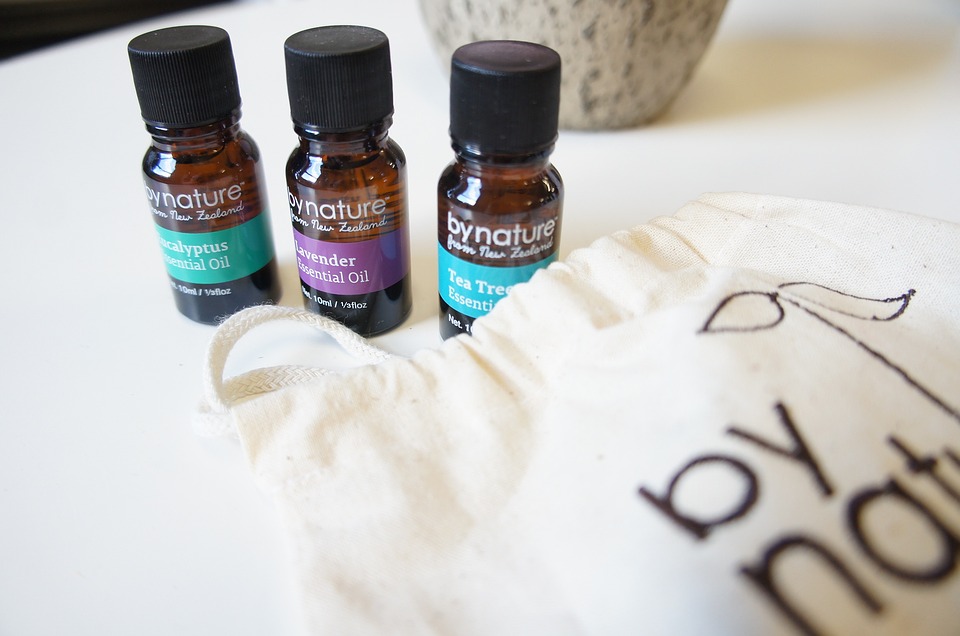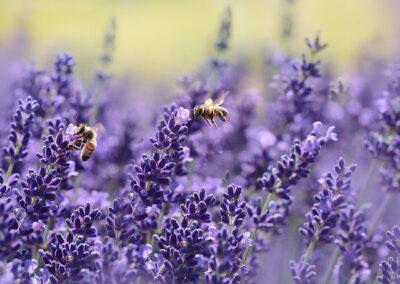Who doesn’t want to rid their home of infectious bacteria and viruses? Many people purchase chemical-laced cleaners to try and accomplish this daunting task, but in doing so they may be doing more harm than good. Chemical cleaners are not naturally antibacterial nor antiviral and can actually cause resistant strains of viruses to develop. Furthermore, harsh chemicals create fumes which can be toxic, especially for children and pets.
Instead, you can eliminate bacteria and viruses with natural essential oils. Here are eight of the best:
1. Tea tree
Tea tree essential oil is incredibly useful for killing topical and airborne bacteria and viruses. Furthermore, tea tree is a natural antiseptic and anti-fungal oil which can kill mold. It is ideal to use tea tree to treat fungus infections, to eliminate the growth of mold, and to destroy viruses and bacteria.
To create an even more potent formula, combine it with eucalyptus essential oil. This mixture is known to kill E. coli and to fight staff infections.
2. Peppermint
Peppermint has antifungal, antiviral and antibacterial properties and is an ingredient in massage and chest rubs used to reduce the symptoms of the common cold. In test tubes, peppermint essential oil kills many types of fungi, viruses and bacteria.
With all of its antifungal, antiviral and antibacterial properties, peppermint essential oil is an excellent way to boost your immune system, as well. It comprises compounds such as camphor, carvacrol and menthol which are resistant to many perilous strains of bacteria such as E. coli, staph infections and salmonella.
Furthermore, peppermint is a great essential oil for purifying the air in your home. It is effective at killing germs and has a fresh, minty scent which is uplifting and refreshing.
Learn how to make herbal medicines in your own kitchen.
3. Lemon
Since lemon essential oil has antifungal, antibacterial and antiviral properties, it makes an excellent cleaner. Lemon essential oil can be used for disinfecting metal surfaces, dishes, clothes and even the body.
To make a homemade, all-purpose cleaner, add lemon essential oil to white or cider vinegar for a green and very efficient cleaner.
Disinfect your clothes after being ill by adding several drops of lemon essential oil to your laundry wash cycle.
4. Eucalyptus
Eucalyptus essential oil has a strong camphor content and scent which gives it potent germicide properties. These properties make eucalyptus essential oil ideal for fighting infections, bacteria and viruses.
Furthermore, eucalyptus essential oil’s germicidal quality makes it an antiseptic, which means it is suitable to treat burns, cuts, wounds, ulcers, abrasions and sores.
Mix eucalyptus essential oil with tree tea essential oil to make the ultimate germicide cleaning solution for your home.
5. Lemongrass
Lemon has a rich history as an antibacterial cleanser. However, lemongrass is sweeter, gentler and not as sour-smelling. Even though lemongrass essential oil does not smell as strong, it is still a potent antibacterial essential oil.
The antimicrobial properties of lemongrass essential oil impede the development of bacteria when used as a massage rub. It can aid in destroying such bacterial infections as malaria, typhoid, food poisoning, urinary tract infections, body odor and various skin conditions.
Lemongrass is also antiseptic in nature and is useful for treating wounds and preventing them from becoming septic. As a potent fungicide, lemongrass essential oil is ideal for treating fungal infections of the skin.
6. Lavender
Don’t be fooled by this wonderfully smelling essential oil! The name “lavender” is derived from the Latin name Lavare, which translates to “wash.”
Lavender essential oil is an authoritative antibacterial oil which can boost your immune system and resist diseases and viruses.
Because of its antiseptic and antibacterial properties, lavender essential oil is useful in treating various skin ailments such as psoriasis, acne and other inflammatory conditions of the skin, as well as stopping infection in cuts, wounds and burns.
7. Cinnamon
Cinnamon essential oil is an extremely potent antibacterial essential oil. Since cinnamon essential oil contains cinnamaldehyde, it is used widely for treatment of various ailments and has been reported to kill germs such as viruses and bacteria.
8. Oregano
Oregano essential oil is a potent essential oil which not only causes noteworthy damage to the strains of bacteria, but it also helps to minimalize the bacteria’s ability to generate toxins which can be severely hazardous to human health.
If you have an ingestible form of oil of oregano, then place several drops under your tongue as soon as you feel the symptoms of a cold or the flu coming on. It will begin to fight the infection immediately.
Ways to Use Essential Oils to Fight Viruses, Bacteria and Germs
- Topically: To use any of the mentioned essential oils, or a blend of your choice, add about 8 drops of essential oil per 4 teaspoons of a carrier oil. You can use this massage mixture as a chest and body rub when you feel a cold or the flu coming on. Not only will it help to diminish any symptoms that you might have, but it also will attack the bacteria and viruses which are causing your infection and sickness.
- A cleanser: To kill germs on surfaces, add 25 drops of essential oils in an 8-ounce spray bottle with distilled water and spray and wipe down all surfaces in your home, office and car. Also, use essential oils in your mopping solutions to cleanse your floors.
- Air purification: To purify germs and viruses from the air, diffuse about 8-10 drops of essential oils in a room diffuser.
What is your favorite antibacterial and antiviral essential oil? Share your tips in the section below:
 Off The Grid News Better Ideas For Off The Grid Living
Off The Grid News Better Ideas For Off The Grid Living





